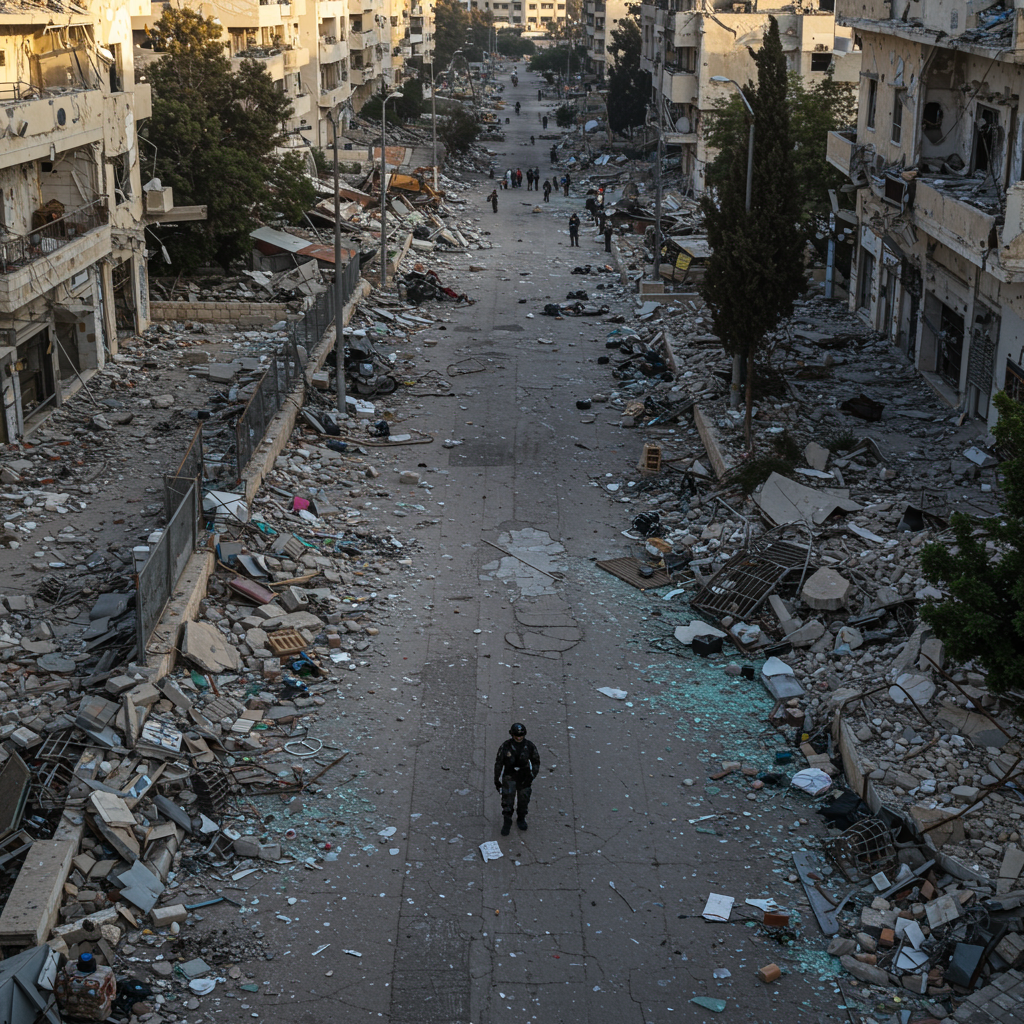Israeli Cities Face Widespread Devastation Following Iranian Missile Barrage
Residents across Israel awoke Sunday morning to scenes of significant destruction after Iran launched a fresh wave of missile strikes. The attacks, described by Iran as retaliation, caused extensive damage in multiple locations, particularly in the north around Haifa and areas near Tel Aviv, including the Ramat Aviv neighborhood and Ness Ziona.
Streets were left filled with rubble, building facades were ripped open, and homes collapsed, leaving only structural skeletons visible amidst piles of debris. One resident from Ramat Aviv, Aviad Chernichovsky, recounted the shock, stating, “Our entire house was destroyed — there’s nothing left.” The immediate aftermath saw residents embracing in distress and medical evacuations of the injured.
Tel Aviv Mayor Ron Huldai confirmed houses were “hit very, very badly,” describing the damage as “very, very extensive.” However, he noted that human casualties were minimal among those who had taken shelter, stating, “in terms of human life, we are okay.”
Damage Extends North and South
Beyond the Tel Aviv area, Israeli police reported impacts in Haifa and Ness Ziona. In Haifa, a public square in a residential zone suffered heavy damage, with surrounding shops and homes severely affected by flying rubble. Storefronts were mangled, windows shattered, and air conditioners left precariously dangling.
Notably, air raid sirens reportedly did not sound in the impacted Haifa area, prompting an investigation into a potential malfunction in the air defence system’s interceptor capabilities.
Retaliation Amidst Escalating Conflict
The Israeli military reported that Sunday’s attacks involved two salvos of missiles beginning around 7:30 am local time. These strikes came as Iran retaliated following a wide-ranging Israeli attack earlier in the week on Iranian nuclear installations and military bases.
This recent exchange is part of an intensifying conflict, with Iran reportedly firing daily missile barrages at Israel for over a week. Iran’s armed forces stated that Sunday’s targets included sites near Ben Gurion airport and claimed the use of sophisticated long-range missiles with “devastating warhead power.”
Air Defense Successes and Limitations
Israel’s sophisticated air defenses, while intercepting numerous projectiles, have not been able to prevent all impacts. The military claims to have intercepted over 450 missiles and approximately 1,000 drones in the past week, but at least 50 impacts nationwide have been officially acknowledged, highlighting the challenges posed by the persistent attacks.
US Reacts: Trump Urges Iran to Make a Deal
Amidst the escalating tensions, former US President Donald Trump strongly reacted to the initial Israeli strikes on Iran, describing them as “excellent” and warning that “more is to come. A lot more.”
Trump has repeatedly urged Iran to agree to a nuclear deal, warning them to “make a deal, before there is nothing left” and “save what was once known as the Iranian Empire.” He attributed the current conflict to Iran’s failure to accept previous diplomatic opportunities, including a recent 60-day ultimatum.
Highlighting the military disparity, Trump emphasized the superior capabilities of the United States and Israel. While stating the US did not directly participate in the specific Israeli strikes on Iran, US officials confirmed providing intelligence to Israel and assisting in shooting down incoming Iranian ballistic missiles targeting Israel.
Despite acknowledging the “great death and destruction” that has occurred in Iran, Trump suggested a narrow window might remain for diplomacy, urging Iran, “JUST DO IT, BEFORE IT IS TOO LATE.” Planned future attacks against Iran are expected to be “even more brutal,” according to his warnings. The ongoing conflict and recent attacks cast a shadow over potential diplomatic efforts, including upcoming bilateral talks.




